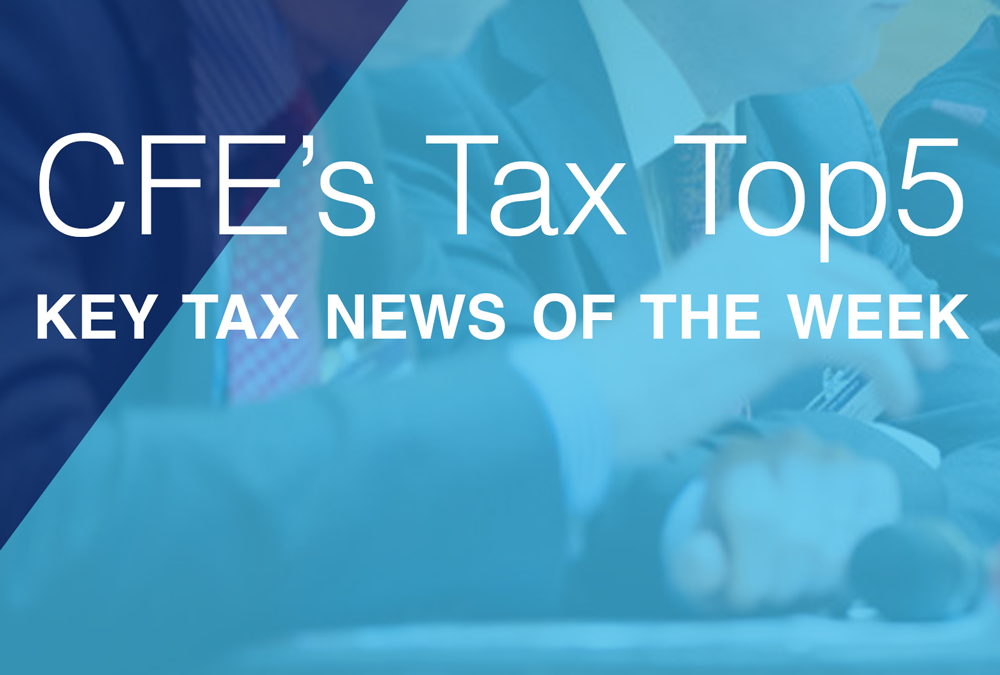BRUSSELS | 29 MARCH 2022
EU Parliament: Hearing on the Dutch Tax System & Exchange of Information with Pandora Papers Jurisdictions
European Parliament’s Taxation Subcommittee (FISC) held two public hearings focusing on the fiscal law changes in the Netherlands and exchange of information for taxation purposes with jurisdictions featuring in the Pandora Papers.
The first hearing saw experts discussing the evolution of the Dutch tax system to accommodate the policy intention of fighting tax evasion, avoidance and aggressive tax planning. The experts identified the use of letter box companies, existence of patent box regime, and a withholding tax regime that still contains loopholes as issues that merit further consideration. MEPs on the other hand highlighted the need for “better regulation of the role of tax advisers” in the Netherlands.
The second hearing focused on improving the framework for exchange of information for tax purposes with jurisdictions that constitute a prominent part of the Pandora Papers revelations which are now in the public domain. The invited experts examined the extent to which lack of transparency is facilitating illicit money flows and hindering asset freezes of Russian billionaires affected by the international sanctions following Russia’s invasion of Ukraine. Improving transparency regarding beneficial owners or requiring EU member states to annually publish their Common Reporting Standard (CRS) statistics was recommended, as was imposing the CRS on US financial institutions..
OECD: Public Consultation on CRS – Crypto-Assets
The OECD has now published a public consultation document concerning amendments to the Common Reporting Standard (CRS) and a new global tax transparency framework to provide for the reporting and exchange of information with respect to crypto-assets. According to the OECD, the new framework will cover the collection and exchange of tax-relevant information between tax administrations, with respect to persons engaging in crypto-transactions. It is proposed that individuals and entities that provide services to exchange crypto-assets against other crypto-assets apply the due diligence procedures to identify their customers, and then report the aggregate values of the exchanges and transfers for such customers on an annual basis to revenue administrations.
Input is being welcomed by the OECD by 29 April 2022 via e-mail (in Word format) to taxpublicconsultation@oecd.org. A public consultation meeting will follow at the end of May 2022.
Registration Open: CFE Forum 2022 on 12 May 2022 in Brussels
CFE Tax Advisers Europe’s 2022 Forum will be held on 12 May 2022 in Brussels on the topic of “The Future of Holding Companies & VAT Grouping in the Current Tax Policy Climate”. The conference will examine issues surrounding the European Commission’s Unshell Proposal and how policy developments affect the use of holding companies and VAT groups across tax structures.
Speakers from a wide range of stakeholder perspectives will examine issues raised by the Commission’s proposal, legitimate uses of holding companies, and problems with the divergence in approaches throughout the EU on VAT grouping.
More details about the programme, line-up of speakers and the registration link for the event is available here.
New FATF Anti-Money Laundering Standards
The Financial Action Task Force (FATF) updated its Recommendations to add new definitions of “nominator” and “nominee shareholder or director”, to strengthen the standards on beneficial ownership of legal persons, and recommended governments set up beneficial ownership registers where this is not already in place. These measures would reportedly be of use in identifying assets targeted by sanctions introduced by the international community following the Russian invasion of Ukraine.
Other changes to the FATF Recommendations include:
- Combating the financing of the proliferation of weapons of mass destruction through the consistent implementation of targeted financial sanctions when these are called for by the UN Security Council.
- Improved transparency to make it harder for criminals and terrorists to conceal their identities or hide their assets behind legal persons and arrangements.
- Stronger requirements when dealing with politically exposed persons (PEPs).
- Expanding the scope of money laundering predicate offences by including tax crimes.
- An enhanced risk-based approach which enables countries and the private sector to apply their resources more efficiently by focusing on higher risk areas.
- More effective international cooperation including exchange of information between relevant authorities, conduct of joint investigations, and tracing, freezing and confiscation of illegal assets.
- Better operational tools and a wider range of techniques and powers, both for the financial intelligence units, and for law enforcement to investigate and prosecute money laundering and terrorist financing.
FATF is the global standard-setter for measures to combat money laundering, terrorist financing, and financing of proliferation. It is an intergovernmental organisation with 36 members and with the participation of over 180 countries through its global network.
Review of the EU Economic Governance Framework
The European Commission has published a review of the European Union economic governance framework. The report reviews the responses to eleven open-ended questions on different aspects of the EU economic governance from 25 different countries, including 21 EU Member States and four non-EU countries.
The report notes that Member states’ fiscal rules should become more growth-friendly, mindful of social issues, and support the policy priorities for the green and digital transition. The respondents contend the main goal of EU fiscal rules should be to support the resilience of EU economies with respect to external shocks and debt sustainability, as well as support of green investment and climate challenge.
A large number of the survey participants call for simplification, transparency and stronger national ownership of the fiscal rules. The report also notes the need for a longer-term perspective on ever-changing EU fiscal framework and to reduce the reliance on complex indicators over which governments have no direct control.
The selection of the remitted material has been prepared by:
Piergiorgio Valente/ Aleksandar Ivanovski/ Brodie McIntosh/ Filipa Correia

